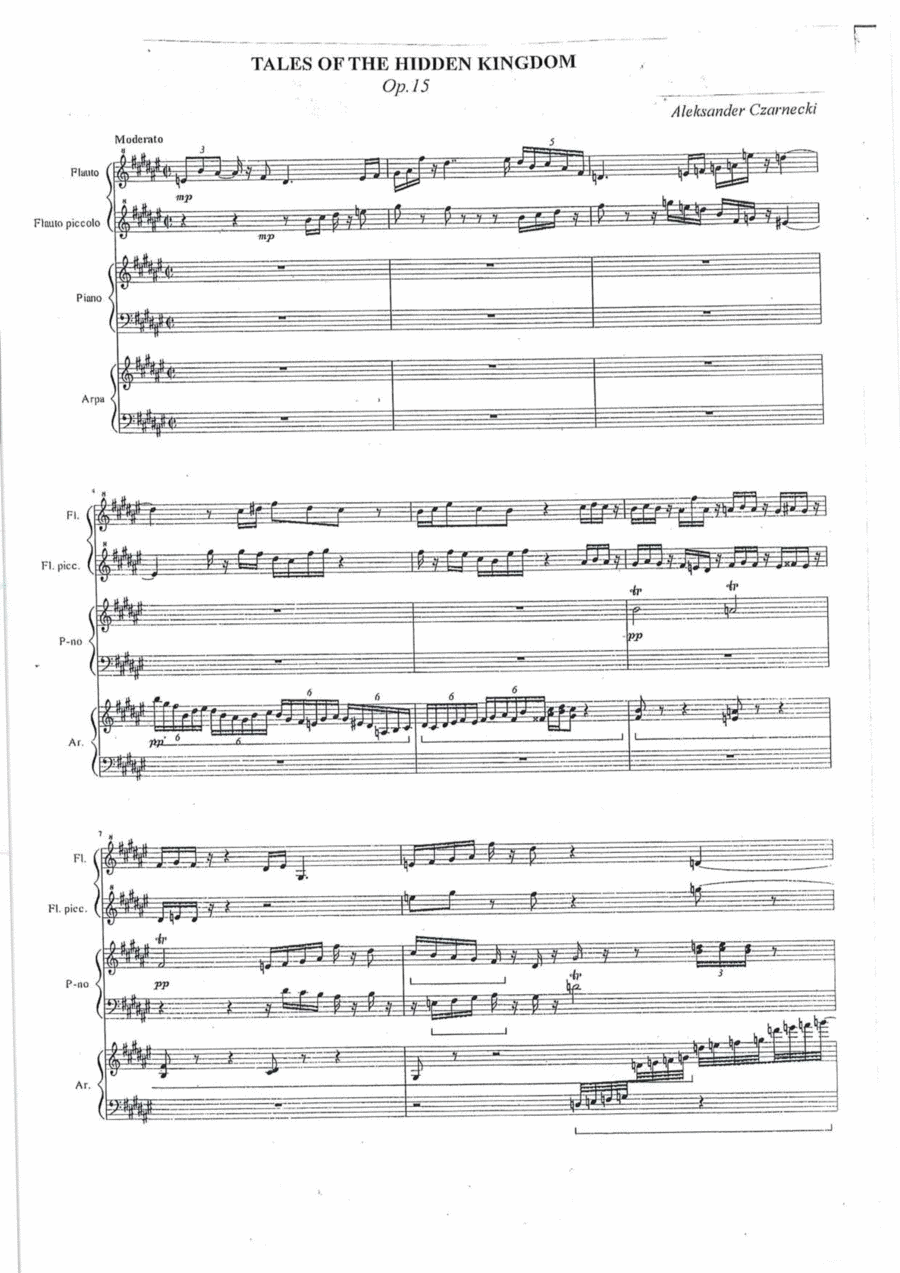Small Ensemble Flute,Harp,Piano,Piccolo - Level 5 - Digital Download SKU: A0.1032136 Composed by Aleksander Czarnecki. Contemporary. Score and parts. 162 pages. Aleksander Norbert Czarnecki #4411649. Published by Aleksander Norbert Czarnecki (A0.1032136). Aleksander Czarnecki (1993-2018) was a Polish polymath, pianist - composer, mathematician and a philosopher. His research focused on the Calabi Yau manifold. He left an astonishing musical legacy, unprecedently rich, diverse and impressive for his young age, including several large scale works as well as piano/orchestra miniatures, chamber music, pieces for piano solo etc. His unmistakingly personal compositional style could be easiest described as post-classical/post - tonal, and is instantly recognizable by its highly intrinsic, intellectually refined idiom of Scriabinesque, modernist/ avant guarde, New Complexity , later minimalist/repetitive music influences married with frequent appeals to historic techniques (contrapunctus, Gregorian plain chant, French harpsichordists, ethnic modality), a dense emotional drive and a profound sensitivity, all in the best of the resolutely post-Romantic tradition further enhanced with a super-human - as if machine induced - level of pianistic/structural difficulty, typically far beyond the one represented by the most demanding examples of, say, Godovsky's/Cziffra's transcriptions or Sorabji's works. (Jozef Kapustka, pianist)Aleksander Czarnecki on his scientific research: My research work concentrates on the modularity conjecture for Calabi-Yau manifolds according to which the Galois representation is isomorphic ( exact to the semisimplification and the finite number of Euler factors) to the Galois representation assigned to an automorphic form -equivalently the L-series of the Calabi-Yau manifold should be equal to the L-series of a certain modular form. The modularity conjecture has been extensively studied by many algebraic geometricians (Dieulefait, van Straten, Yuri, Schoen, Hulek, Verrill, Schuett, Meyer) however these studies have not resulted in producing a sufficiently representative number of examples of small level modular forms. In the best understood, rigid case of Calabi-Yau threefolds defined over the field of rational numbers, the modularity conjecture delivers from a more general Serre conjecture, as proven by Wirtemberger and Khare. Additionally, the modularity has been known a property only for certain particular Calabi-Yau varieties. For some non rigid Calabi-Yau threefolds (certain double octics) defined over rationals ( or more generally over particular number fields) the existence of modular or Hilbert modular forms has been hypothetically suggested. I am mainly interested in Frobenius polynomials of non-rigid double octics and have been extensively working with variants of Dwork's deformation method, monodromy and selected p-adic methods including algorithms by Kedlaya, Lauder, Tuitman et al. , Picard-Fuchs operators etc. (Aleksander Czarnecki, 2018)
